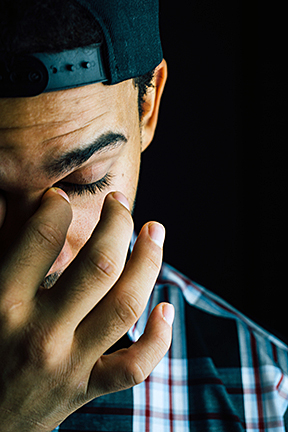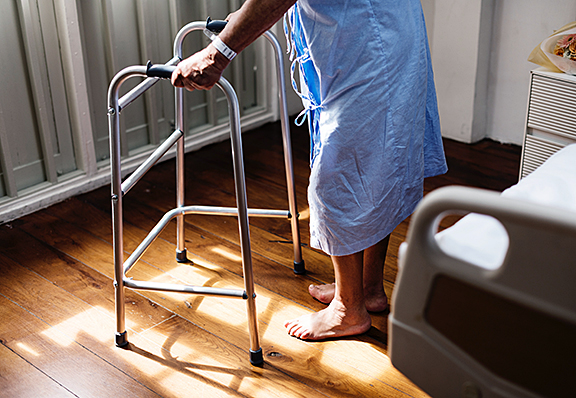Checklist For The Last Chapter

It’s been a while since I’ve covered it but I have to deal with it practically every day so let’s make sure we get through it as painlessly as possible.  What I am talking about is your dying … the last chapter of your life and what control you have over it. I have been known to say to people ”I like you. -I hope you drop dead.” People are taken aback until they actually think about it, then they get it. You can drop dead in your sleep after years of good or you can succumb to one of your many illnesses probably during some nursing home stay. You know what a great place they are. They must be great because they are full all the time. Yet everyone I know says ”You’ll never get ME in one of those places!” This column is for you to plan ahead so you actually have some say in what happens to you when you are no longer independent. Don’t leave it up to your kids, most don’t have what it takes to do the right thing and honor your wishes, it gives many of them a guilt trip making life or death decisions that were not thought out ahead of time. You know me – I think you should have it all planned out, the burial business, even what you want in your obit and the music you want played. But we are not talking about what happens after you die, we are talking about filling out a few forms that will guide your care at possible end of life situations.
What I am talking about is your dying … the last chapter of your life and what control you have over it. I have been known to say to people ”I like you. -I hope you drop dead.” People are taken aback until they actually think about it, then they get it. You can drop dead in your sleep after years of good or you can succumb to one of your many illnesses probably during some nursing home stay. You know what a great place they are. They must be great because they are full all the time. Yet everyone I know says ”You’ll never get ME in one of those places!” This column is for you to plan ahead so you actually have some say in what happens to you when you are no longer independent. Don’t leave it up to your kids, most don’t have what it takes to do the right thing and honor your wishes, it gives many of them a guilt trip making life or death decisions that were not thought out ahead of time. You know me – I think you should have it all planned out, the burial business, even what you want in your obit and the music you want played. But we are not talking about what happens after you die, we are talking about filling out a few forms that will guide your care at possible end of life situations.
Either you are going to go out easy or hard —that’s your call— either surrounded by friends and family in your own home or die in some sterile Intensive Care Unit being tortured by emotionally repressed staff that are treating your body, doing whatever they can to eke out a few more hours or days of your badly dwindled self. I don’t know about you but that’s an easy choice for me. So that means I am a DNR. -Do Not Resuscitate. No CPR for me. I am well read on the success statistics of CPR and except for defibrillator use, there is only a tiny chance of meaningful recovery.
So the first decision you have to make is who will be your health care proxy. You should list an alternate because people die, etc. This person should have a good idea of your end of life wishes. My wife is my proxy and she knows my wishes well. There are free forms on the internet so you have no excuse.
Then you decide on DNR for yourself or not. If you really want everything done, (which I translate to mean that you have no idea what’s in store for you), but if you do indeed want every possible means taken to keep you alive all you need is the Health Care Proxy.
If you want to be DNR which, to me, translates to mean dignified death then you have to get an out of hospital DNR form from your doctor. They have blank ones on file. This only works if people see the paper so keep it in that folder on the fridge next to your med list.
Now it’s New York State so you know there is some terrible paperwork yet to be faced. A completely unnecessarily complex form that tortures patients families and doctors alike. It’s called the MOLST form. This form addresses reasonable questions about your care but in a needlessly complicated way. The form proceeds to ask about full code versus DNR, then whether you just want respiratory support, then to ask about IV fluids, antibiotics, at what point to hospitalize you etc. -Good questions … bad form.
I know a lady who had two children who were both doctors. -The daughter came to her mother one day and said, “You know ,mom , your son is your health care proxy. Did you know that if you were in a nursing home and had pneumonia he would withhold antibiotics and let you die?!” The mother responded ”That’s exactly why HE is my proxy and you are not. If I ever end up in a nursing home that means I’m in a bad way. Don’t keep me around.”

It’s hard to pull the plug … it’s hard to see your loved one slowly endure the dwindles. Each one of us has to decide for themselves the right thing to do but it sure helps the family a lot if your wishes are obvious and oft repeated. My guiding principles are to try and treat everyone at this time like they were my own father and also to go along with whatever they want to do for as long as we can (even if its not in their best health interests) because that’s what I would want done for me. I hope I drop dead … just not today.
Now let’s get serious. Your loved one is in the adult home or nursing home. They wouldn’t be there if they could avoid it. They wouldn’t be there if they were healthy. They are indeed writing the last chapter of their lives. Why are you still insisting on giving them so many pills. Of course they are depressed. -Do you really think a little white pill is going to make it all better? You are deluding yourself and subjecting your loved one to unnecessary meds. Dr. Richard Kennedy published in the Journal of the American Medical Association November 2018 that the most commonly used drugs Aricept and Namenda actually worsened dementia and cause patients to be worse off than without the medicine. I know people that have started their mother or father etc., on one of these pills and they did well and I’m not discounting that but the published literature in a very prestigious medical journal says not only do they not work but they make people worse. Also, I see many people in the nursing home setting still taking cholesterol drugs. Dying quickly of a heart attack or stroke would be a blessing in these patients. The evidence that statin drugs work well in this population is very very limited and I don’t think justifies their use. For that matter I wouldn’t treat blood pressure because I think the side effects of many of the blood pressure pills outweigh the possible benefits. No, may I suggest to you that when you are putting your loved ones in the nursing home it’s time to stop almost every single medicine and focus on what’s important … their comfort. If they want ice cream and whiskey for breakfast and dinner great. If they want to eat M & M ‘s instead of peas, what color do they prefer? Multiple studies have shown that when you stop the polypharmacy some patients actually improve off the medications!

Some people look at me when we have these discussions like I am trying to finish off their relatives. On the contrary, I am devoted to doing everything I can to improve the quality of their life. Unfortunately patients and doctors alike put way too much faith in the pills which is not justified by the published medical literature but the urge to do something is very strong. It’s taken me over 30 years as a physician to realize that sometimes, often really, less is more.
Until next month … get well … stay well.









